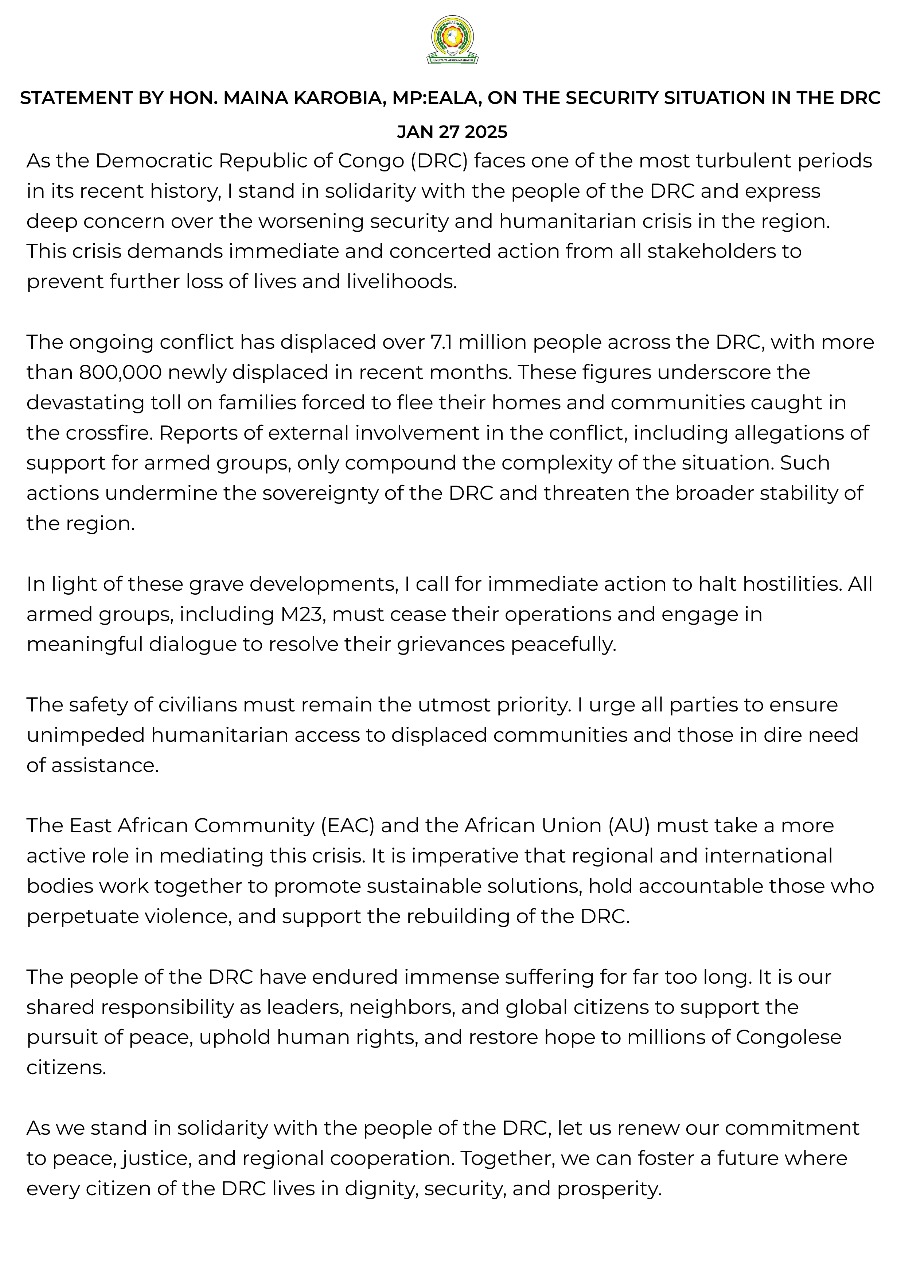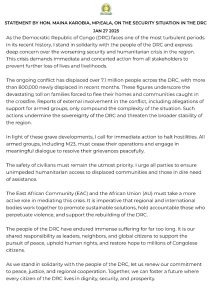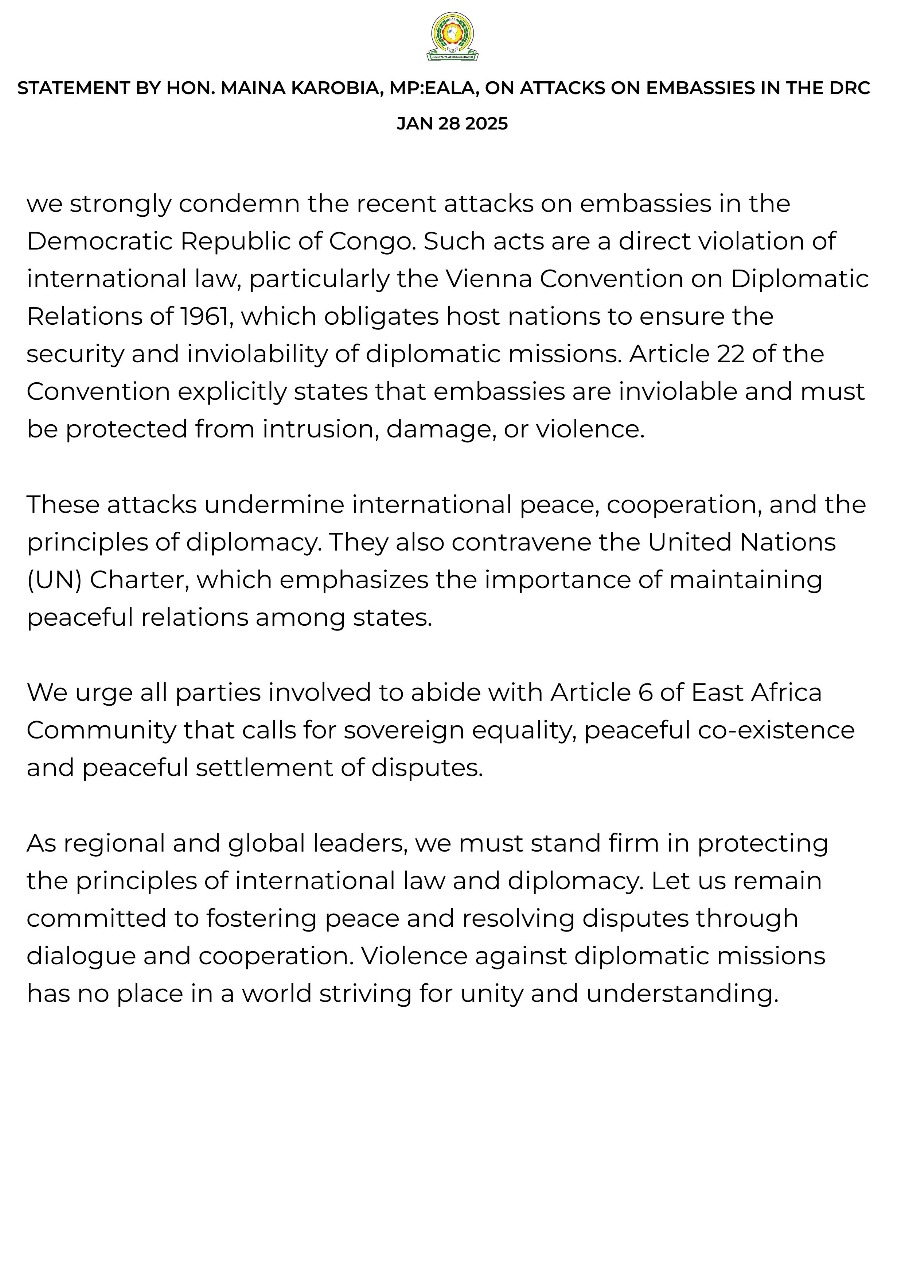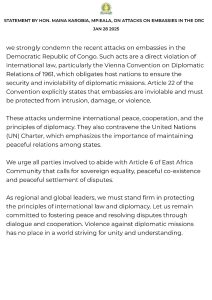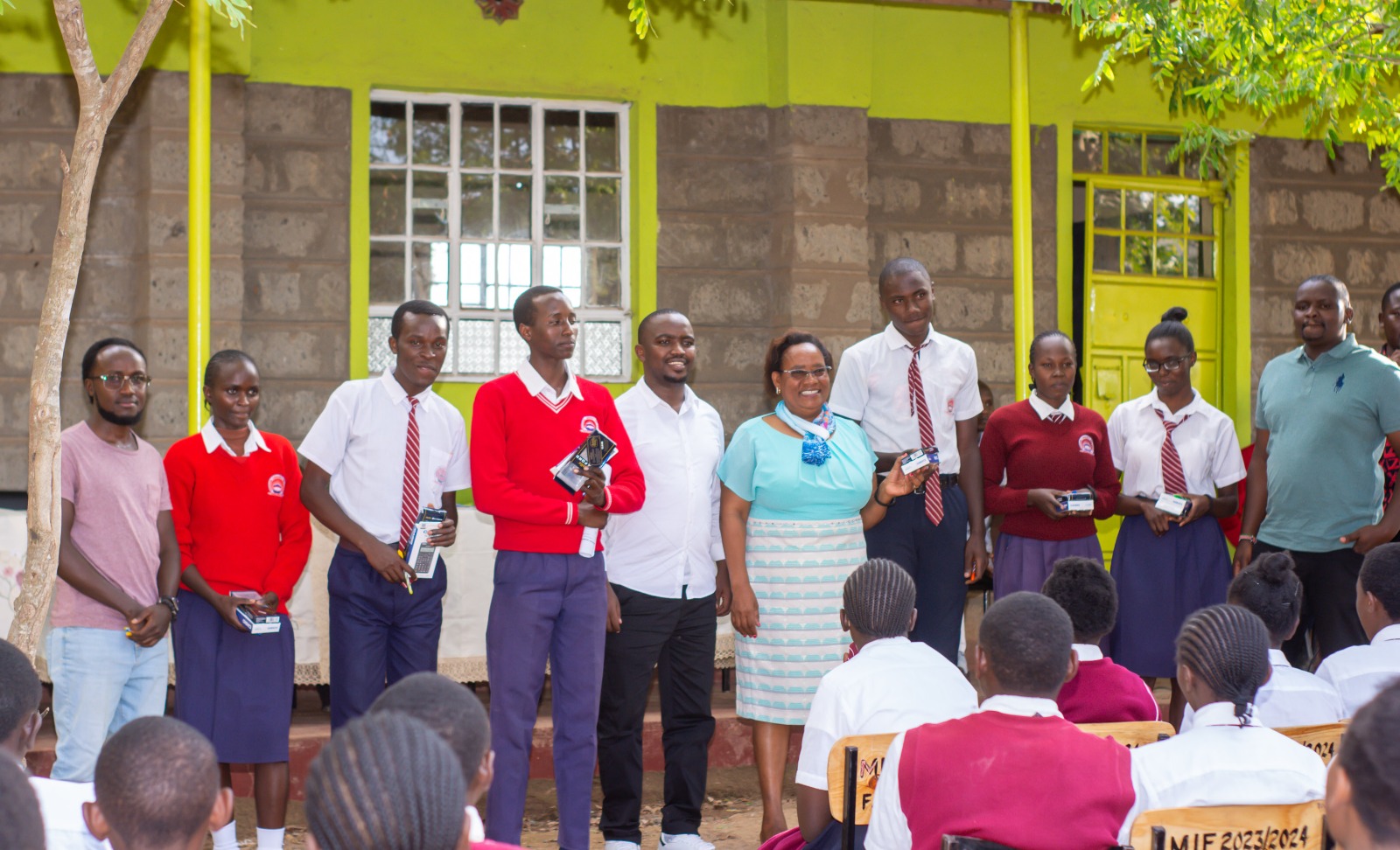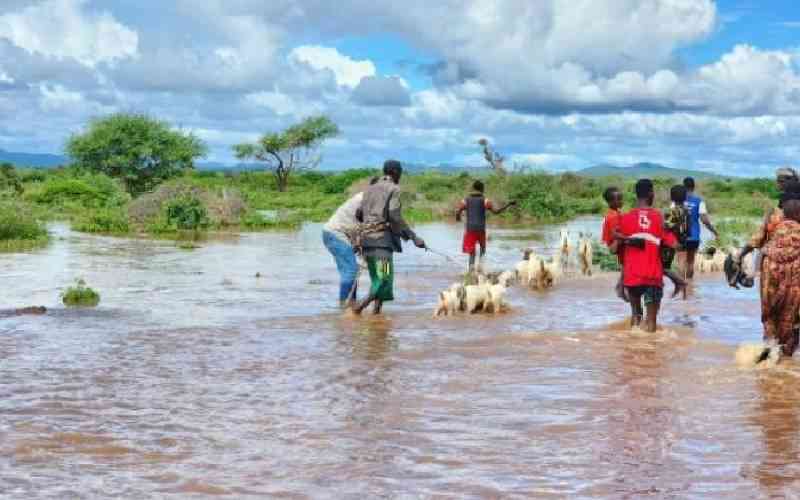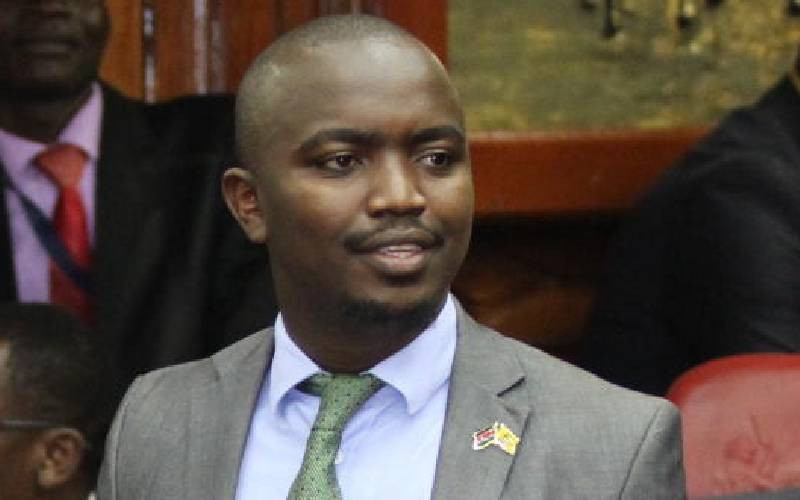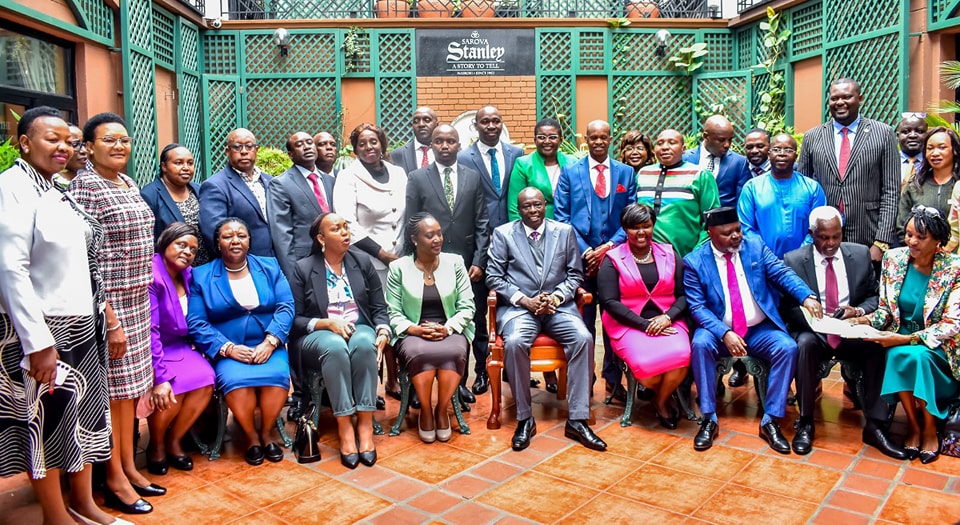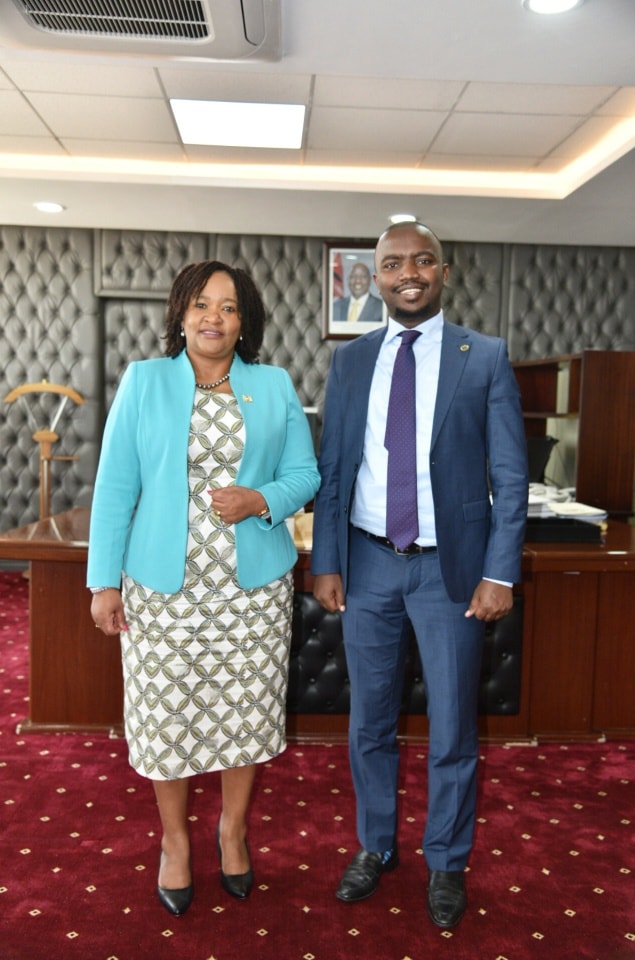Initiated the equipping of schools with the required examination materials
We are committed to improving academic performance for our schools at community and regional levels as we seek to secure access to quality education for all.
World Bank report our economy stands at 5.9%
In the year 2022 Economy was at 4.3% when the UDA Government took over, From current World Bank report our economy stands at 5.9%
Floods crisis should make us unite, pursue resilient future
In the heart of East Africa where the ambitions of progress meet the unforgiving forces of nature, Kenya is grappling with a crisis of monumental proportions – El Niño rains. As the torrential rains continue to pound, the nation finds itself in the grip of a formidable adversary of floodwaters. Since October, relentless rainfall has triggered widespread flooding, transforming serene rivers into raging torrents that spill over their banks. The repercussions of this natural calamity are profound, affecting communities, agriculture and infrastructure.
The El Niño weather pattern, characterised by warmer-than-average sea surface temperatures in the central and eastern Pacific Ocean, has triggered an abnormal and intense rainy season in Kenya. Thirty-six out of 47 counties have been impacted by a dangerous combination of riverine floods, flash floods, and landslides. The regions most affected include Garissa, Isiolo, Mandera, Marsabit, Samburu, Tana River, and Wajir counties, as well as Kilifi and Mombasa along the coast. ReliefWeb has reported that at least 95,772 households have been affected. Approximately 13,108 families are currently residing in 96 in temporary shelters and evacuation centres.
The agricultural sector has suffered significantly, with over 17,600 acres of farmland destroyed and more than 13,400 livestock reported dead. The impact extends to water and sanitation infrastructure, disrupting normal services and limiting access to water sources. The supply chain for medical, nutritional, and non-medical commodities, including routine programme items, has been disturbed. Roads are damaged, hindering emergency medical referrals, and health facilities are experiencing prolonged power outages, affecting care for individuals with chronic ailments.
The consequences of this flooding go beyond immediate concerns, with increased risks of cholera outbreaks, mental health issues, loss of livelihoods, post-harvest losses, and food security challenges. In times of crisis, the true mettle of a government is tested. President William Ruto’s Kenya Kwanza government has mobilised resources to respond to the unfolding disaster. Recognising the situation’s urgency, the government declared the floods a national disaster, activating emergency response mechanisms to mitigate their impact on communities.
Deploying disaster response teams, including the National Disaster Management Unit and Kenya Red Cross Society, reflects the government’s commitment to providing immediate relief to those in distress. Evacuation efforts have been going on to relocate families from high-risk areas to safer locations, minimising the risk of loss of life. Temporary shelters have been set up to accommodate those displaced by the floods, ensuring their basic needs – shelter, food, and medical care are met.
The government has also initiated a comprehensive assessment of the damage inflicted by the floods. This assessment is the foundation for a strategic recovery plan, outlining the steps to rebuild and fortify vulnerable areas against future natural disasters. The government’s dedication to a swift and effective response underscores the importance of a proactive approach to disaster management.
As we grapple with the current flood crisis, we must also recognise the broader context in which these disasters unfold – the spectre of climate change. The increasing frequency and intensity of extreme weather events, including floods, are indicative of a planet in distress. The ReliefWeb report on the El Niño floods in Kenya highlights the role of climate change in exacerbating these events, underscoring the need for a comprehensive approach to disaster resilience.
The focus must extend beyond discussions to tangible, actionable solutions. Innovative measures that marry economic development with environmental sustainability are the need of the hour. The incorporation of green technologies, sustainable land-use practices, and climate-resilient infrastructure in national and regional development plans is paramount.
The global community must recognise the shared responsibility in addressing climate change, with developed nations contributing to the funding and technology transfer necessary for climate-resilient development.
The President’s commitment to champion the interests of Kenya and the larger EAC at such a prestigious global platform signifies a recognition of the region’s vulnerability to climate change and the importance of collaborative efforts in building resilience.
I urge all stakeholders to unite in pursuing a resilient future. While the government and regional institutions have a primary responsibility to address the flood crisis, collective action is essential to ensure a comprehensive and sustainable response. The private sector, civil society organisations, and individual citizens can all play a role in supporting relief efforts and contributing to long-term recovery.
Digital Superhighway pathway to a brighter future for all Kenyans
In today’s ever-connected world, the Internet is not just a tool for communication, it is the foundation of innovation, economic growth, and social development. For a country like Kenya, where innovation and entrepreneurship are thriving, harnessing the power of the Internet is not just a matter of convenience but a critical driver of economic growth.
Nairobi declaration is a resounding victory for African countries
Undoubtedly, the summit represented a watershed moment for the continent. As a member of the East Africa Legislative Assembly (EALA), I find it inspiring that Africa has taken a substantial step towards becoming a proactive global participant, reshaping the multilateral financial model.
Building meaningful partnership between Germany and EALA
Honoured to engage in insightful discussions with Ambassador H.E Sebastian Groth and President Hon.MartinSchulz of FESonline (FES-Kenya). The German government and FES remarkable project of Just City is a testament to their commitment to social inclusivity and urban justice. Together, we strive to build a society where every individual thrives in dignified living spaces. Grateful for their partnership in creating a more equitable future.




